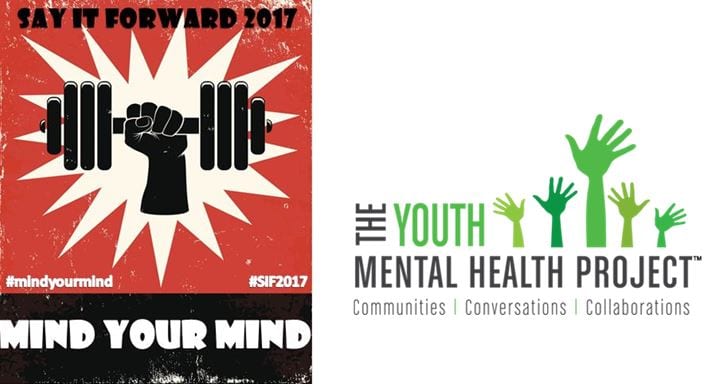By Wendy Ward, Executive Director, The Youth Mental Health Project
My first experiences with mental health conditions are the reasons that I co-founded The Youth Mental Health Project. I believe that by changing the way we talk about and how we act with regard to our children’s mental health, we can create better outcomes for ourselves, our children, and future generations. That is why the International Bipolar Foundation’s #SayitForward campaign is key to change. #SayItForward is dedicated to educating and inspiring people to learn the facts and talk about mental health.
I was in middle school when I learned that my dad’s mother suffered from schizophrenia and had lived most of her adult life in a psychiatric hospital. It was an awkward revelation that made me feel, as I suspected my father felt, uncomfortable. Maybe my dad believed that somehow his mother’s condition was his fault, or maybe he was ashamed. I felt not having known myself was embarrassing, shameful, even silly. If I had known then what I know now, I would have told him it’s not your fault.
I would have also told my younger self when I found myself a stepmother to a child from my husband’s first marriage – a child who faced challenges we failed to name or understand – you just don’t know enough and it’s not your fault. Although we had no doubt that something was very wrong, it took a family crisis of epic proportions to get him the help and definitive diagnosis that he needed. Even though I had a vague experience with mental health conditions regarding my grandmother, I didn’t realize children could be afflicted with these issues too.
Just like physical health – we all have mental health.
Backed by science and research, The Youth Mental Health Project believes mental health encompasses far more than the short list of disorders that affect one’s mood, behavior, or thinking. Mental health includes our emotional, psychological, and social well-being, and it is important to care for it at every stage of life. This makes it important that as parents, we heed our parental instincts. If something isn’t right—we must keep searching for the answers. In today’s world, surrounded by constant sound bites and headlines, it’s all too easy to become immune to news. Sadly, however, the latest mental health research shows that depression in many children appears to start as early as age 11 and by the time children hit age 17, 13.6 percent of boys and 36.1 percent of girls have been or are depressed. Worse, suicide is the second leading cause of death in children ages 10 to 24.
We can’t hold these statistics at a distance, viewing them as someone else’s problems, and we can’t stay silent anymore. Mental health conditions are more common than heart disease, lung disease, and cancer combined! Through campaigns like #SayitForward, we can learn about mental health and act with knowledge. Doing so is paramount to prevention, early intervention, and achieving all-around better outcomes.
Just like physical health, mental health can and does shift and evolve throughout our lives. When our children show signs of physical illness, such as fever or intense pain, we understand that medical intervention or professional help may be necessary to improve their conditions. With mental health it can be difficult to understand the difference between age-appropriate thoughts, feelings, and behaviors and those that may be signs of problematic issues and warranting professional intervention. This means we must educate ourselves and become more discerning, taking the time to value mental health like we value washing our hands or putting a bandage on a cut; our minds require attention and upkeep. That is why we need to empower discussion with our children and ourselves. The Youth Mental Health Project is thrilled to advocate in partnership with #SayItForward to educate and support each other’s emotional well-being.
It is okay to have a range of emotions. When our feelings hurt, many of us prefer to just brush them under the rug and pretend they do not exist. It seems easier than talking about them. It is only when feelings come out from inside of us and see the light of day through empathetic dialogue that hurt or anger can be processed, understood, and set free. A growing body of experts are promoting emotional health, which is proven to enhance the young mind and its capacity to integrate skills, attitudes, and behaviors effectively and ethically into daily tasks and challenges. Together with #SayItForward we promote five key factors to emotional health:
- Self-awareness: Your ability to recognize your own emotions and their effects.
- Self-management\Self-control: Your ability to manage disruptive impulses.
- Social awareness\Perspective: Your ability to have empathy and respect for others.
- Relationship Skills: Communication and social engagement; teamwork.
- Responsible Decision-making: Identifying, analyzing, and solving problems.
Most importantly, in doing the work to raise healthy children don’t forget you are not alone. Join a community of support or work with The Youth Mental Health Project to create one in your town. For more about The Youth Mental Health Project go to YMHProject.org. In addition, save the date for the Say It Forward Campaign. To participate, visit https://ibpf.org/event/say-it-forward-anti-stigma-campaign on October 8th!


